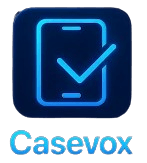
Concord Servicing Corporation Harassing Telephone Calls and Debt Collection Harassment?
Is Concord Servicing Corporation Harassing you? Everyday, people go into debts. Economy is sometimes unpredictable and different things happen daily that can throw people into debts. If you have fallen behind on some bills then it’s just a matter of time before you begin to get calls from debt collectors. You may be wondering why a is calling you since you do not owe them. Debt collectors are actually third party agencies that try to recover debts on behalf of creditors and businesses.
If you are getting calls from a debt collector, it may be due to a specific account or multiple accounts that you owe to one of your creditors. It is always wise to confirm what a debt collector is saying before proceeding to make any form of payments. Before you pay any amount, make sure to verify whether the account in question has already been paid or if you are legally required to pay.
Debt collectors have the right to call you about a debt that you owe but they do not have the right to harass or threaten you, including making harassing telephone calls. Debt collectors cannot demand payment for accounts that have already been paid or for which you do not owe.
Introduction to Debt Collection
Debt collection is a process where a debt collector, such as Concord Servicing Corporation, works to recover debts that consumers owe to creditors. This process can involve a range of activities, including sending letters, making telephone calls, and negotiating payment plans. Companies like Credit Control Services, Financial Asset Management, and CMRE Financial Services are also active in this field, each offering their own credit control services to help creditors recover outstanding debts.
It’s important to know that all debt collectors must follow fair debt collection practices as outlined by laws like the Fair Debt Collection Practices Act (FDCPA). These laws are designed to protect consumers from unfair or abusive tactics and ensure that the debt collection process is handled with respect and transparency. If you are contacted by a debt collector, you have the right to dispute the debt and request verification before making any payments. Additionally, if you feel overwhelmed or harassed, you can seek financial assistance or legal advice to help manage your situation. Understanding your rights and the process can empower you to handle debt collection with confidence and protect yourself from potential abuse.
Understanding Debt Collectors
Debt collectors, including Concord Servicing Corporation, Encore Receivable Management, and National Collection Bureau, play a central role in the debt recovery process. These companies are often hired by creditors to collect debts on their behalf, reaching out to consumers through phone calls, letters, or even emails. While their job is to recover money owed, debt collectors must operate within the boundaries of the law, specifically the FDCPA, to prevent abusive or unfair practices.
Other companies, such as Atlantic Credit, Firstpoint Collection Resources, and Credit Management, are also part of this industry and must adhere to the same legal standards. Consumers should be aware that while debt collectors have the right to contact them about debts owed, they cannot use threats, intimidation, or misleading information. If you are contacted by a collection bureau or a company like Concord Servicing, it’s important to know your rights, verify the legitimacy of the debt, and seek help if you feel you are being treated unfairly. Remember, the process is meant to be fair for both creditors and consumers, and you have the right to seek support if you experience abusive behavior.

Understanding Debt Collection Harassment
Debt collection harassment is a serious issue that affects many individuals. It is essential to understand the laws that protect consumers from harassment by debt collectors. Certain forms of harassment and abusive tactics are considered illegal under the Fair Debt Collection Practices Act (FDCPA). In this section, we will discuss the protection under the law, defenses, and strategies for dealing with debt collection harassment.
How to Handle Debt Collection Harassment as an Alleged Victim.
Being harassed by debt collectors is not anyone’s favorite thing, but it happens and knowing what to do when it does, is crucial. Harassment can occur even if no conversation ensues.
When a debt collector begins to harass you by calling your phone multiple times with the intent of annoying and disturbing you, this is what you should do:
- ➤ Take note of the frequency of their calls: Get a pen and paper ready close to your phone and write down the time and discussion every time they call you. This will help you certify if they are actually calling you too many times or not.
- ➤ Record your calls: If it is legal in your state, record your calls every time debt collectors call. This is very necessary because you may forget everything they said after sometime. Also, debt collectors may deny saying certain things in court.
- ➤ Speak to an attorney conversant with debt collection issues and file a complaint to the Federal Trade Commission, your State’s Attorney General, or your state’s court.
Protection Under the Law
The Fair Debt Collection Practices Act (FDCPA) is a federal law that regulates the behavior of debt collectors. The law defines specific actions that are considered harassing, oppressive, or abusive. For instance, making repeated telephone calls to a consumer, especially after they have requested the calls to stop, is prohibited. Debt collectors are also forbidden from using obscene language or making threats of violence. Additionally, they cannot make false or misleading statements about the debt or the consumer’s credit report, nor can they contact the consumer at their workplace or during inconvenient times. Importantly, debt collectors must provide written notice of the debt and the amount owed.
Consumers who are victims of debt collection harassment can file a complaint with the Federal Trade Commission (FTC) or their state Attorney General’s office. They also have the right to file a lawsuit against the debt collector for damages.
Defenses and Strategies
If you are being harassed by a debt collector, there are several defenses and strategies you can use to protect yourself:
- ➡️ Requesting that the debt collector stop contacting you: Under the FDCPA, you have the right to request that debt collectors stop contacting you. If the debt collector continues to make harassing telephone calls after you have made this request, you may be able to file a lawsuit against them.
- ➡️ Disputing the debt: If you believe that the debt is not valid or that the amount owed is incorrect, you can dispute the debt with the debt collector. This may require you to provide documentation or evidence to support your claim.
- ➡️ Seeking the help of a consumer protection attorney: If you are being harassed by a debt collector, consider seeking the help of a consumer protection attorney. These attorneys specialize in representing consumers who have been victimized by debt collectors and can help you file a lawsuit or negotiate a settlement.
- ➡️ Filing a complaint with the FTC or your state Attorney General’s office: If you believe that a debt collector has violated the FDCPA, you can file a complaint with the FTC or your state Attorney General’s office. This can help to stop the harassment and may result in penalties for the debt collector.
In conclusion, debt collection harassment is a serious issue that affects many consumers. However, there are laws in place to protect consumers from harassment, and there are defenses and strategies that consumers can use to protect themselves. If you are being harassed by a debt collector, it is essential to understand your rights and to seek help from a consumer protection attorney or government agency.

Who is Concord Servicing Corporation?
They are a third-party debt collector located in Scottsdale, Arizona. Concord Servicing Corporation is a debt collection agency
Address: 4150 N Drinkwater Blvd Ste 200 Scottsdale, AZ 85251-3643
Website: http://www.concordservicing.com
Phone: (480) 998-7585
Is Concord Servicing Corporation a Scam?
No, they are an approved debt collection agency. According to the Better Business Bureau website, They have been in business for 31 years. There have been 23 complaints filed against CSC with the BBB. Read more here: Concord Servicing Corporation BBB
Consumer Rights Law Firm PLLC
Consumer Rights Law Firm PLLC is a law firm that specializes in helping clients who are facing harassment from debt collectors. The firm also handles cases involving harassment through electronic communication. If you suspect that your debt collection rights are being trampled upon, contact our office to begin the process to stop the harassment you may currently be receiving from Concord Servicing Corporation Our office has been assisting consumers since 2010, and we have an A+ rating with the Better Business Bureau.a
Call us at (877)700-5790 for immediate assistance.
Seeking Help
If you are experiencing harassment from Concord Servicing Corporation or other debt collectors such as Credit Bureau Associates Northeast, Automated Collection Services, or Diversified Consultants, it’s important to know that help is available. Attorneys who specialize in debt collection cases can offer a free case review and guide you through your legal options. These professionals understand the complexities of debt collection laws and can help you take legal action if your rights have been violated.
You can also reach out to law offices like Hollis Cobb Associates or Ross Associates, which have experience handling cases against aggressive debt collectors. In addition to legal support, organizations such as CU Recovery, CSC Logic, and FMA Alliance provide financial assistance and credit recovery services to help you regain control of your finances. Whether you need advice on how to respond to a debt collector, assistance with negotiating a settlement, or support in recovering your credit, there are resources and associates ready to help you seek the recovery and protection you deserve.
Conclusion
In conclusion, debt collection can be a complex and overwhelming process for consumers. However, it is important to remember that you have rights and protections under the law. By understanding the debt collection process, knowing how to identify and respond to harassment, and seeking help from qualified professionals, consumers can navigate their debts with greater confidence and security. If you find yourself facing aggressive collection tactics, don’t hesitate to seek support and take action to protect your financial well-being.

Frequently Asked Questions
Why is Concord Servicing Corporation contacting me?
Concord Servicing Corporation may be contacting you to collect a debt related to timeshare, loan servicing, or financing accounts.
Is it legal for Concord Servicing Corporation to call me multiple times a day?
While they can contact you regarding a legitimate debt, excessive or harassing calls may violate the FDCPA and TCPA laws.
Can Concord Servicing Corporation contact me at work?
Debt collectors are not allowed to contact you at work if your employer prohibits such calls or if you have requested they stop.
What rights do I have under the FDCPA and TCPA?
You have the right to dispute the debt, request written verification, and stop harassing or unwanted communications.
How can I make Concord Servicing Corporation stop calling me?
You can send a written cease-and-desist request. If calls continue, you can report them or take legal action.
Can I sue Concord Servicing Corporation for phone harassment?
Yes. If they violate your consumer rights, you may sue for statutory damages, emotional distress, and attorney’s fees.
What should I do if Concord Servicing Corporation is trying to collect a debt I don’t owe?
You can dispute the debt in writing and request validation within 30 days of the first contact.
Does Concord Servicing Corporation have to verify the debt?
Yes. Upon request, they must provide written verification of the debt, including the original creditor’s information.
Can Concord Servicing Corporation leave voicemail messages?
They may leave voicemails, but messages must not disclose sensitive debt information or mislead you about your rights.
Who can help me stop Concord Servicing Corporation harassment?
Consumer Rights Law Firm PLLC can help you stop illegal calls and recover compensation for any violations.







